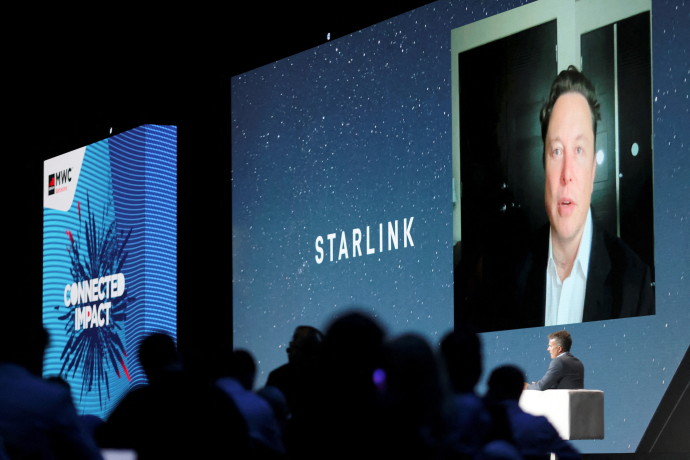SpaceX cannot indefinitely fund its Starlink internet service in Ukraine, CEO Elon Musk said on Friday. Starlink provided crucial communication capabilities for the country's civilians and military to stay online during the war with Russia.
Presidential adviser Mykhailo Podolyak said in response that Kyiv will find a solution to keep the Starlink internet service operational in Ukraine.
"Let's be honest. Like it or not, Elon Musk helped us survive the most critical moments of war. The business has the right to its own strategies. Ukraine will find a solution to keep Starlink working. We expect that the company will provide stable connection till the end of negotiations," Podolyak wrote on Twitter.
Musk's comments came followed a media report that SpaceX had asked the Pentagon to help with the funding of Starlink in Ukraine. The billionaire has also been in squabbles with Ukrainian officials over a "peace plan" he put forward which Ukraine says is too generous to Russia.
With responses to his supposed "peace plan" still fresh, one comment to the report about the funding for Starlink in Ukraine noted how a Ukrainian diplomat had used an expletive to tell Mr. Musk to buzz off.

“We’re just following his recommendation,” Musk tweeted on Friday.
Who's really paying for Starlink?
Musk claimed that he spends nearly $20 million a month for maintaining Starlink satellite services in Ukraine. He recently said that SpaceX had spent about $80 million to enable and support Starlink there.
Funding the systems would cost more than $120 million for the rest of the year and the price tag could reach almost $400 million for the next 12 months, according to SpaceX.
More than 12,000 Starlink internet terminals, which were designed to work with satellites orbiting in space to provide online access, have been delivered to Ukraine since Russia’s invasion in late February.
"SpaceX is not asking to recoup past expenses, but also cannot fund the existing system indefinitely *and* send several thousand more terminals that have data usage up to 100X greater than typical households. This is unreasonable," Musk wrote on Twitter on Friday.
"We’ve also had to defend against cyberattacks & jamming, which are getting harder," Musk wrote.
Musk was initially lauded for providing the Starlink terminals to Ukraine, but according to Politico, the vast majority of the services were partially or fully funded by other parties, including the US government, the UK and Poland.
Poland is the largest single contributor and has paid for almost 9,000 terminals, which cost $1,500 and $2,500 for the two models sent to Ukraine, according to documents released by SpaceX.
Among the documents was also a request from Ukrainian General Valeriy Zaluzhnyi to SpaceX for almost 8,000 more Starlink terminals, according to CNN. SpaceX reportedly responded by recommending the request be sent to the US Department of Defense.
SpaceX reaches out to the Pentagon
Pentagon officials said that there have been discussions about how to help the Ukrainian military to stay online during the war. One official, speaking with the New York Times on the condition of anonymity, said that Defense Department officials hope that Mr. Musk and Ukrainian officials can work out a path forward, but added that the possibility of the Pentagon footing the bill was not out of the question.
“The Department continues to work with industry to explore solutions for Ukraine’s armed forces as they repel Russia’s brutal and unprovoked aggression,” the Pentagon press secretary, Brigadier General Pat Ryder, said in an email, according to the New York Times. “We do not have anything else to add at this time.”
Reuters contributed to this report.
